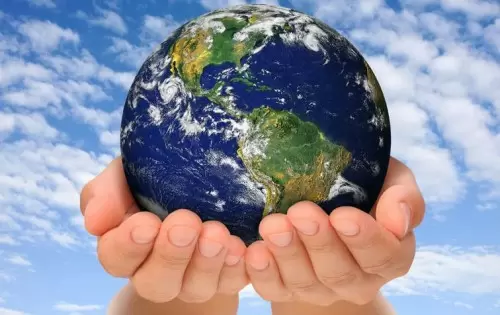Mississippi's environment is dominated by our namesake river. The broad, muddy Old Man has delivered us the fertile soil that powers our agricultural industry and sustains our vast forests. It's also a transportation lifeline, connecting the heartland to the ocean, and a home for some of our more than 200 species of native fish and more than 400 species of birds.
But if it's freshwater that dominates the conversation here today, it's the ocean that will be our primary concern in the coming decades.
Mississippians shouldn't be fooled by our slender sliver of coastline. In a state with a mean elevation of only 300 feet, sea level rise is a real threat well inland, with a 6 foot increase-possible as soon as 2080 in some scenarios-snaking up the bayous from Biloxi and inundating low-lying regions at high tide. And that's before you start accounting for storm surge levels, which will also occur more frequently in a world lashed by heat-driven hurricanes that are more common and much larger than what Katrina threw at us.
And we're already coping with major flooding from storms well upriver, another trend that's likely to continue.
With the challenges come opportunities for highly trained and well-educated environmental scientists. And Mississippi colleges stand ready to handle that education.
What Can I Do with an Environmental Science Degree in Mississippi
Companies like Georgia Pacific and International Paper have plenty of work for private sector environmental scientists, dealing with regulatory and compliance issues at the big mills and harvesting operations we host here.
There are also plenty of opportunities in the non-profit world, with organizations like Ducks Unlimited and the Nature Conservancy working throughout the state to preserve and protect our abundant wildlife populations.
You have to love what you do, because the state isn't one of the highest paying in the nation for environmental scientists… foresters and conservation scientists make in the only around $50,000 range according to the Bureau of Labor Statistics. On the other hand, soil and plant scientists and geoscientists make over $90,000 per year on average.
2020 US Bureau of Labor Statistics salary figures and job growth projections for the professions listed reflect state data not school-specific information. Conditions in your area may vary. Data accessed September 2021.
Master's in Environmental Science in Mississippi
A master's degree takes you right to the pinnacle of your profession and can help you land at the top end of whatever pay scale you are on in environmental science. We've got a fair few solid choices at this level across Mississippi, from the Marine Science master's program at the University of Southern Mississippi to the Master of Science in Environmental Health at Mississippi Valley State University.
But MSU may be the place that takes the cake for the best variety and deepest resources for master's degree students. Officially titled the Mississippi State University for Agriculture and Applied Science, you can see how it got that way. With degrees in horticulture, forestry, agronomy, plant sciences, geosciences, and entomology, you can branch out into almost any aspect of environmental studies and be assured of receiving a top-notch education. Rated by the Carnegie Foundation as a level 1 doctoral and research university, it's not only the largest in the state, but also one of the best in the country.
Bachelor's in Environmental Science in Mississippi
Before you go on and get that advanced graduate degree, though, you need to create a firm foundation for your studies with the right kind of undergraduate degree. While most of the same schools that have good graduate programs here can also offer you a bachelor's of the same quality, your horizons open up even further with options like Jackson State, which has a BS in Biology that lays the groundwork for many types of advanced environmental degrees.
There are also private school options like Millsaps College, also located in Jackson. Through the Department of Geology, you can major in geology, geophysics, or environmental science while participating in hands-on, frequently publishable, research during your undergraduate education. Together with field trips to diverse regions and terrain types, it's a hands-on type of program that will prepare you for either progression to an advanced degree program or direct employment in the environmental science field.







